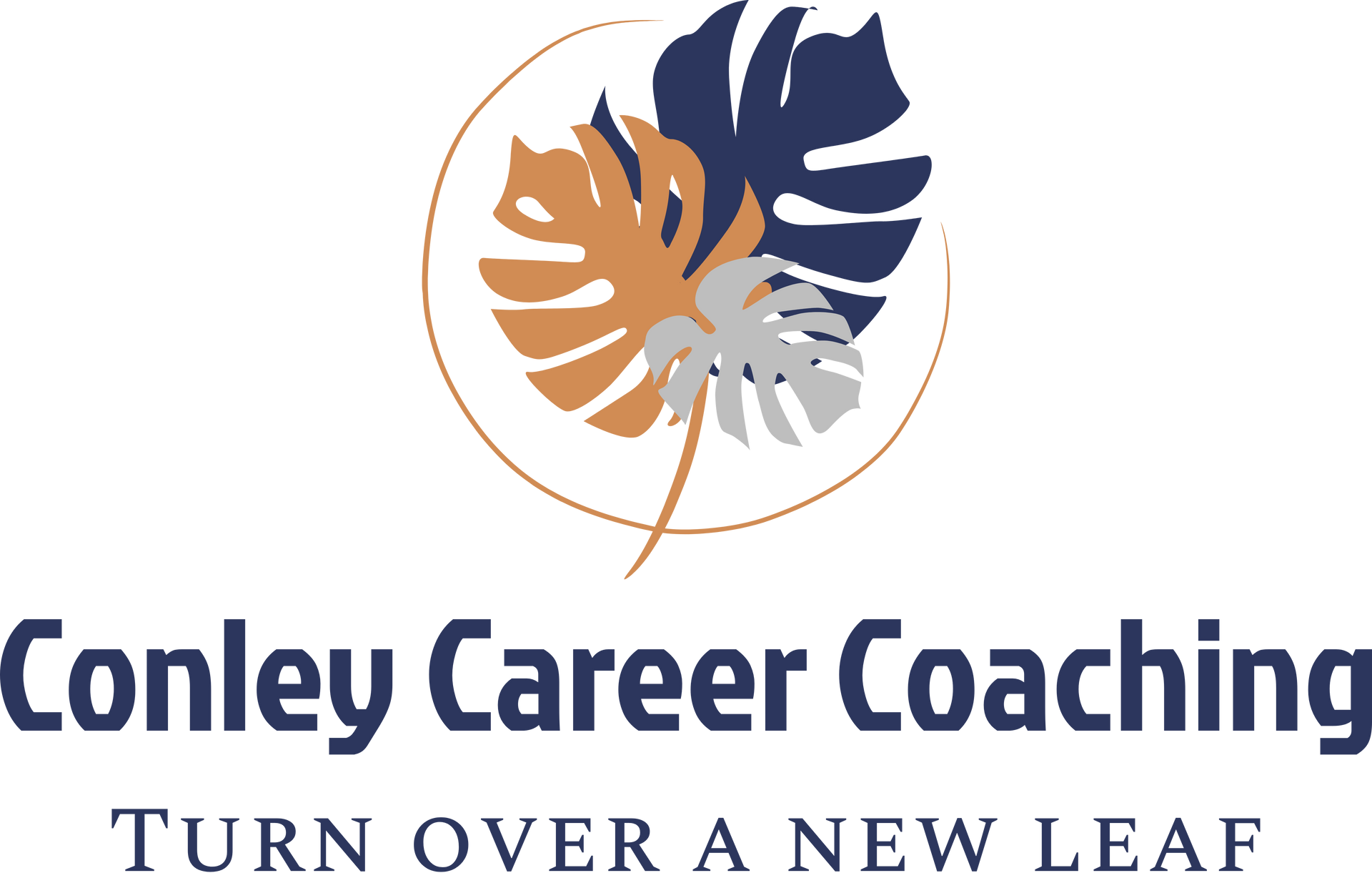A New Perspective
Katie Conley • 24 February 2021
A New Perspective

I loved playing tennis when I was a teenager, but I had great difficulty reading my opponent because I couldn’t see their face clearly, which often meant I was slow to get to the ball! I could see them running around the court, but their facial features appeared blurry to me, which made it harder to anticipate what their next shot would be. As a result my enjoyment of tennis was impaired. I used to wear glasses in the classroom to see clearly, but I hadn’t realised my glasses would make a difference when I was playing tennis!
Isn’t this sometimes how we see our careers? We get stuck in day-to-day activity and we can’t see beyond the end of our day, let alone the end of the week. Sometimes we know things aren’t right because we find ourselves moaning about our jobs, or we feel overly anxious at work, or we have an unnerving feeling that we think we should be doing something else, but we just keep turning up for work each day and nothing changes, in fact things may get worse.
We forget to look at our careers with the right perspective! We lack clarity about what might be wrong and because we’re not clear about what’s wrong we stumble to fix it.
So how can you get clarity about your career?
1. Be clear about what’s wrong? Get specific!
If you find yourself moaning about your job, what specific things are you moaning about? Which things can you change? How can you change your attitude about things you can’t change?
If you feel overly anxious at work, what specific things are causing you to feel anxious? Is it workload, lack of experience, misalignment of your values with your workplace? What are the good things about your work?
If you think you should be doing something else, what is it about your current job that makes you feel that way? Again be specific.
2. Refocus.
Take some time to refocus. If you’ve ever been for an eye test, you’ll know that you have to look through a few different lenses before you find the ones that suit you! So think about your values, your interests, the things you find satisfying, your achievements and your strengths. How many of these are being met in your current job? Rate them in terms of importance, do you need to make a small adjustment and stay where you are or do you need to pivot and do something different? Are there any skills you need to focus on to take the next step in your career?
3. Your future career vision.
Having taken time to refocus, the next step is to get clarity on your future career vision. What are the things you can imagine doing in your future career? What timeframes are you considering, 2 years, 5 years, 10 years? What skills will you have mastered? Which strengths will be helping you achieve your career dreams? Which of your core values will be satisfied? What is your vision of what you will actually be doing in your career?
4. Your career prescription.
Your career prescription outlines the steps you need to take to get from your refocus to your career vision! Ask yourself, how can I get from where I am now to where I want to be in the future. This could range from scheduling informational interviews to find out what careers in a specific area are like. It could include any new skills training or qualifications you might need. It could be identifying what the next job in your career should be. It might just be a small shift, or it could be a larger move.
So, take a moment to look up from your day job, refocus and consider your career goals from a longer-term perspective. Having a clear vision about where you want to go will make all the difference and help you make the next right move!

As many of you know it’s been an ‘interesting’ few months for me, following an accident in mid-December when I fractured my spine. This quote from Lao Tzu was on the door of the lift (elevator) in the hotel where I was staying on holiday before I had my accident. I literally saw it several times a day. Little did I know how important it would become for my recovery journey. I had started December 2023 full of creative ideas for 2024. I was developing a new Learning Guide, I was training in Grid™ coaching tools I wanted to use with clients. I was brimming with thoughts and content for running a career retreat. It was all bubbling beneath the surface waiting to be developed further. Breaking my back put a stop to all of it. Initially, I tried to ‘soldier on’, but I soon found that healing broken bones takes energy and time and I very quickly tired. Christmas came and went, and I thought I’ll get back to full capacity soon, but I didn’t. I was exceptionally tired and lacking in energy. Strangely enough I found coaching energising, thankfully a lot of it is on zoom, but any business development, forward or blue-sky thinking seemed beyond me.

The gift of contemplation! This is what I’ve been given at the start of 2024. It's been great to let my mind wander and to contemplate, but I was concerned about how I was going to capture the ideas that flowed in and out of my mind. I was reminded of the importance of contemplation in a career search, an opportunity to let your mind wander, to wait and see what lands, and not to be in a rush, but to consider fledgling ideas or different options and ponder them BEFORE taking any action. Contemplation is a process, best not rushed. It requires time and space; and dare I say it peace and quiet! It requires no judgement, let thoughts come and go, and wait to see what settles. As the contemplation progresses you will find you gather ideas from different sources, friends, family, colleagues, books, podcasts, webinars, networking events (online for me at the moment), the world around you and this has been true for me. Two things that have landed for me so far. 🍁 GENTLE - My word for the year (I’ve never had a word for the year before). This is about being gentle to myself, and with clients, colleagues and anyone I come into contact with. So many of my clients come to me when they can’t see a clear way forward, they’re not sure of the next steps, perhaps they’ve lost confidence in their skills and abilities. A gentle coaching approach can yield wonderful results for them. I’m intrigued to see how it plays out this year. 🍁 A Bible verse - “See, I am doing a new thing! Now it springs up; do you not perceive it?” (Isaiah 43:19). Before Christmas I felt as if I was brimming with ideas for 2024, as if they were bubbling up inside me but I hadn’t got to the stage of formulating them. This verse fills me with hope, anticipation and encouragement for the new year and all it will bring. Over the next few weeks I’m going to spend more time contemplating and developing plans to provide opportunities for my clients to grow in confidence, seek their career purpose, be clear about their next steps, and I’m really excited about how this might look – watch this space! I have found the process of contemplation to be really helpful and I encourage you to do take some time to contemplate your career and see what ideas and thoughts come up. Let me know what they are in the comments or DM me I’d love to hear them.

Faith and career coaching - do they belong together? Well, I think they do, and I was very honoured to be asked by Accredited Master Coach Jenny Butter to take part in the best practice podcasts she hosts called Both Sides of the Coin. The podcast is aptly named ‘Both sides of the coin’ because Jenny talks to both a coach or mentor and one of their clients to explore both sides of the coaching/mentoring intervention – what works and what doesn’t. As the proverb says, iron sharpens iron. As a Christian and a Licenced Career Coach, I have a particular interest in how faith interacts with our career choices and my coaching provides a space where Christians can discuss their careers from a faith-based perspective. This doesn’t mean that everyone I coach ends up becoming a minister or a priest, far from it. What they want to do is explore their careers from a Christian viewpoint, understand the skills and talents God has given them and consider the plans God has for their career. Jenny is a pro and she asked great questions and was keen to get views from coach and coachee perspectives. My thanks also to Lisa Robertson, Head of Operations at i61m for being willing to be interviewed along with me for the other side of the coin. Lisa has worked in a number of different sectors including retail, IT, digital, design, marketing, healthcare, education, and charity. At a time in her life when she wanted to explore what was next career-wise, it was important to her to also consider things from a faith perspective. You can listen to the podcast here.

Taking the time to do a Career Self-Assessment can be a cathartic process. It can have a positive impact on how you feel about your career, give you clarity about changes you want to make in your career help you set clear career goals. A Career Self-Assessment can also give you the motivation you need to make a change to do something different, whether that’s developing a new skillset, taking on a new challenge or having the confidence to apply for a promotion, or even change jobs. Gathering information about where you are in your career, what’s in your Career Toolbox and understanding what needs to change can be great catalysts for you to get a step closer to resolving your career problems. Here are my steps to help with your own career self-assessment. STEP 1 – WHERE ARE YOU IN YOUR CAREER ? How do you feel about your current role/job? • Everything’s peachy but you wonder where all your hard work is leading. • Your career excites you and you’re keen to progress but that might need to be with another organisation. • You daydream about a new career, but you’re not sure what’s possible. • You feel indifferent, stuck in a bit of a rut but can’t see the way out. • You feel pretty miserable and dread going to work. It’s definitely time to make a change. Be honest! We all have good days and bad days, but if you’re experiencing a run of bad days it’s time to acknowledge things need to change. STEP 2 – BE SPECIFIC ABOUT CHANGES YOU WANT TO MAKE Even if you’re content in your career there might be tweaks you could make so it’s even better, or you might have a nagging feeling that it’s time to move on to somewhere you can grow and stretch your wings. Being specific about what you want to change will help give you clarity about the way forward. Identify the things you like about your current role (if you’re on a career break think about what you used to like!) • What drew you to that role in the first place? • Which bits of your role do/did you find enjoyable and why? • What do you most look forward to about your working day? Identify the things you dislike about your current role (if you’re on a career break think about what you did not like when you were working!) • What things would you rather not do in your current role? • What constantly falls to the bottom of your to-do list? Understand what’s wrong – what do you hate about your job? • What are the things you moan or complain about? • What are the things that make your stomach churn? Are they external factors – your boss, colleagues, culture? • Are they functional things about your job role? STEP 3 – IDENTIFY WHAT’S IN YOUR CAREER TOOLKIT Be clear about the everything in your Career Toolkit. These are the things that can help you make a change, either a small shift in your current role or a larger change to a new job or stepping out on a career change. Start with your values. The values you hold can help you to make decisions about the jobs that are right for you. • What are the values that are important to you? • How well do they fit with your current position/organisation? • What would you like to change? • Which ones are red lines that you wouldn’t want to compromise? Then consider your interests. Not everyone wants to turn their hobby into a career but of you are interested in your work that can have a direct effect on job satisfaction. • What things really interest you? • What things regardless of money, time, location what would like to be doing? Review your skills. Make a list of all your skills. Keep writing until you run out of ideas. • Which ones do you want to use more and which ones less? • Which ones would you like to improve? • Are there any gaps? • Which ones are transferable? Identify your strengths. These can be skills you excel at, or the way you behave, or how you respond to situations. Being clear about your strengths can make a huge difference to career satisfaction. • What things are you really good at, enjoy doing and give you energy? STEP 4 – WHAT HAVE YOU DISCOVERED? Review what you’ve discovered in your career self-assessment. 1. Love it or hate it? On balance – how do the scales tip for how you feel about your career? What key things stand out for you? 2. What do you want to change? Make a note or 2 or 3 things? 3. What are the key things in your Career Toolkit? FINALLY Any successful change starts with a clear self-assessment. Email me for a free template to complete your own career self-assessment.

Do you feel like you’re on a treadmill in your career? It’s a treadmill you know so it’s comfortable and you just keep going, but all the time you’re wondering what it would be like if you could get off and do something different. And then another week goes by and you’ve still done nothing, and then a month …. and so, you procrastinate! The Latin for procrastination is “to put forward until tomorrow” but knowing what it means doesn’t necessarily make us feel any better about putting things off! So why do we procrastinate? We’re not sure about what to do or how to do something. We can’t see an immediate benefit to help us feel good about what we need to do. We’re worried about failing, or not doing it properly and so never get started. We don’t know where to start because what needs to be done is too big? We think it will be too difficult and so we stick with the status quo by doing nothing, pretending we’re waiting for an ‘opportune moment’! Procrastination can become a habit, and so we need a specific strategy to overcome it! Know your triggers The desire is there – you want to look for a new job and you wake up one weekend full of good intentions to browse jobs online. Do you … Put the kettle on first and whilst you’re waiting for it to boil phone a friend for a chat about whether you should look for a new job and end up talking about holiday plans? Browse all the jobs online, get excited and then worried that you haven’t got what it takes? Find a job that looks great but then panic because you haven’t got a CV and you have no idea how to put one together, so you browse a bit more and find lots of ‘how to’ websites for CVs but there are so many you don’t know where to start and you realise that it’s going to take longer than you expected, and you don’t have much time, so you ‘leave it for now’. Understand the cause Identifying your symptoms can help you understand why you procrastinate. In the first example distractions are getting in the way. In the second case it’s fear of failure. And in the third it’s because the task seems too difficult and too big. Do you recognise any of these? Do distractions always get in the way for you? Do you let fear of failure impact your ability to move on? Or do you put things off because they just seem too big and too daunting? Once you know what’s causing your procrastination it’s much easier to deal with it! Plan your strategy If you know your triggers and you’re aware of what causes you to procrastinate but you really want to make a change in your career, then I recommend the following strategies. 1. Start small but motivational – write down why you want to change jobs but keep it brief! You could write: I want ……… better work/life balance, more career progression, more challenge, opportunities for learning, better pay, to be better appreciated, to work somewhere where my values fit better with the culture. When you know WHY you want to do something it can really help with your motivation! 2. Set a goal – what do you want to achieve? Ideally this should be a BEST goal, but the most important thing when you’re setting career goals is ‘how attractive’ the goal is to you? Does it attract your energy? Do you really want to do achieve this goal? If you do then you will be able to draw on this energy to overcome procrastination when it comes along! It could be “I really want to be ………….….” Can you visualize yourself doing this? 3. Make short term plans – write a ‘to do’ list for your career change. It could include update my CV, update my LinkedIn profile, search for jobs online, contact recruitment agencies, talk to contacts in my network about opportunities. 4. Break tasks into chunks – break each task down into smaller chunks. So, update my CV could also include – research CV formats, note down all my skills and achievements, speak to a CV expert. Talk to contacts could include a list of people you want to have a chat with. 5. Do one thing at a time - career change is a journey best taken one step at a time! It’s much easier to know you’re only taking one step rather than a big leap and it’s much easier not to put that one step off until tomorrow! 6. Ask someone to check up on you – share your career goal with someone you trust so they can ask you how you are getting on from time to time. When you share your goal with someone close to you, you’re more likely to do something towards achieving it! And if you do find yourself making a cuppa whilst you think about your career, why not give me a ring? I’d be delighted to help you put a procrastination busting career plan in place!

Last week a recent graduate applied for a 'dream job.' Since he has a short work track record, during the career coaching session we focused on telling stories about the voluntary work he has done and his life experiences, combined with his academic achievements, which have contributed to what he has to offer a future employer. He had a story to tell that spoke to each of the requirements on the job description and person specification that was engaging and demonstrated his passion for the career he wants to pursue. He used these in the covering letter and application form, and as a result he was, of course, selected for interview. Following a day of intense preparation, researching the organisation, we did an interview practice where I helped him develop stories for questions the panel of interviewers might ask. Consequently he went into the interview armed with a list of stories he could tell to impress, when asked about his achievements, successes, strengths and skills. These stories weren't all based around the STAR (Situation, Task, Action, Result) or SOAR (Situation, Obstacle, Action, Result) approach that many career and recruitment specialists suggest, but they did have a beginning, middle and end, and when told together built up a picture which demonstrated his passion and keenness. My top tips for telling compelling application and interview stories are … 1. Prepare the stories • Think about where your skills, strengths and experiences match the requirements of the job. If the employer is looking for excellent communication skills, what story do you have that could illustrate this? • If the employer is looking for specific technical skills what story could you tell them about how you have demonstrated this in the past? • What stories could you tell that would show expertise across a range of things the employer is looking for? • What are the stories you like to tell, that demonstrate your passion and enthusiasm for your career? 2. Share the stories • Make a note of all these stories and then tell them to someone! This could be a family member, friend or colleague. Get them to ask questions so that you can expand on your story and to help you remember things you might have forgotten. 3. Write the stories • Match your stories to the requirements in the job description as well as the person specification. • Use some of the key stories in your covering letter or when answering questions on an application form. 4. Practice the stories • Consider the questions you might get asked in an interview and practice answering them with you stories, so they become fluent and it feels natural when you are telling them. And how does his story end? It’s still being written! He has more and more to share each time he applies for a job and attends an interview. The next thing to master is ... perseverance!

When I went back to work after my second child was born, over 20 years ago, I felt like I was putting on an old pair of slippers. Things had changed whilst I had been on maternity leave and there was no challenge for me - I would arrive for work, sit on my chair, slide my feet under the desk and feel like I was wearing a pair of slippers rather than smart court shoes I usually wore for work! I hadn't realised how important being challenged at work was for me. I had always stayed because there was something new to learn, there was plenty of variety which kept me on my toes, so when this was absent I felt too relaxed and too laid back as if I was sitting at home relaxing in a pair of slippers rather than pursuing an active and engaging career! It was time to find something new that aligned more closely with my work values. So often when our work values are not inline with our current jobs this can lead to dissatisfaction and poor performance, but how do you know if this is the case? Do you have a nagging feeling that something is not quite right and that you want to make a change? If so it would be worth exploring what your work values are and how closely aligned they are to your current role. If they are not, then perhaps it's time to make a change, as I did, exchanging my metaphorical slippers for a pair of stylish ankle boots!

2020 has been an unusual year to say the least! I started it by setting up Conley Career Coaching full of anticipation for meeting new people and helping them find meaningful and satisfying careers. In fact I wrote this in my Mission Statement! Then of course the unexpected happened and the year I had anticipated unfolded in a very different way. Alongside my Mission Statement I also wrote out my goals for the year which included meeting clients on a one-to-one basis, developing a quality toolkit to use in career coaching, working with a range of clients in terms of backgrounds and experiences and continuing my own personal development as a Career Coach. I am pleased to say that I have done all of this, despite spending far more time in my office on zoom than I had expected. I am thankful that I wrote these goals down because otherwise looking back on this strange year I would not have been able to see the clear progress I have made. I’m definitely going to set more goals for 2021, and I’m going to make them my BEST goals! • Believable – do I really believe in my goals? • Energising – am I energised when I think about completing them? • Specific – are they clear, detailed and unambiguous? • Time-bound – have I allocated a realistic timescale for them? This really helped with my sense of direction in 2020 despite feeling like everything had stopped and I am convinced that setting goals for 2021 will make a huge difference to what I accomplish next year. Make 2021 your BEST year yet by setting effective career goals! Feel free to get in touch to talk them through with me – just think what you could achieve when you are clear about where you’re heading!


